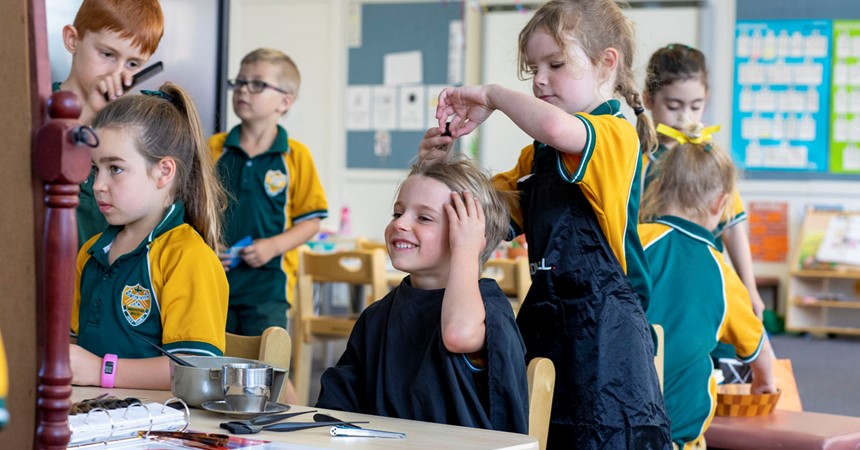Students under the tutelage of those in attendance are now the beneficiaries of play-based learning.
Kim Moroney, Education Officer (Early Learning) at the Catholic Schools Office, says Mr Wallis’s message aligns with the philosophies of the Early Learning policy launched in March 2018. She was keen to secure him to deliver his talk “The Developing Brain — what 2-7-year-olds need to know”.
In his presentation at the Wests Bowling Club, New Lambton, Mr Wallis guided teachers through the stages of brain development that occur through childhood. His takeaway message was that children flourish in a free-play, child-led environment, where parents and teachers are responsive to the child’s creativity.
Play is a key element of the Diocese’s Early Learning policy and is having a profound impact on learning and wellbeing.
Mr Wallis said advances in neuroscience in the past decade have deepened our understanding of brain development and cognitive functioning and these findings often contradict many long-held practices.
“The result is there is now a large gap between how people ‘think’ the developing brain functions, and what neuroscience research has actually shown to be the case,” he said.
Bridie Stanger, Kindergarten teacher at Holy Family Primary School, Merewether Beach said Mr Wallis’s presentation was engaging and practical.
“He highlighted the early years as a critical time for a child’s social and emotional skill development, not early cognitive attainment,” Ms Stanger said. “These skills include perseverance, problem solving, confidence, risk taking, self-care and most importantly, a sense of belonging.
“As educators, creating environments that develop a child’s creativity and diversity under the age of eight is important to facilitate this development. We must nurture the dispositions of each child as a learner, not focus on how clever they are, but how clever they feel they are.
“I will continue to provide play provocations that are rich in opportunities for children to explore, experiment, imagine and engage with each other and the environment. Literacy and numeracy are naturally integrated within a child’s play.”






















































































